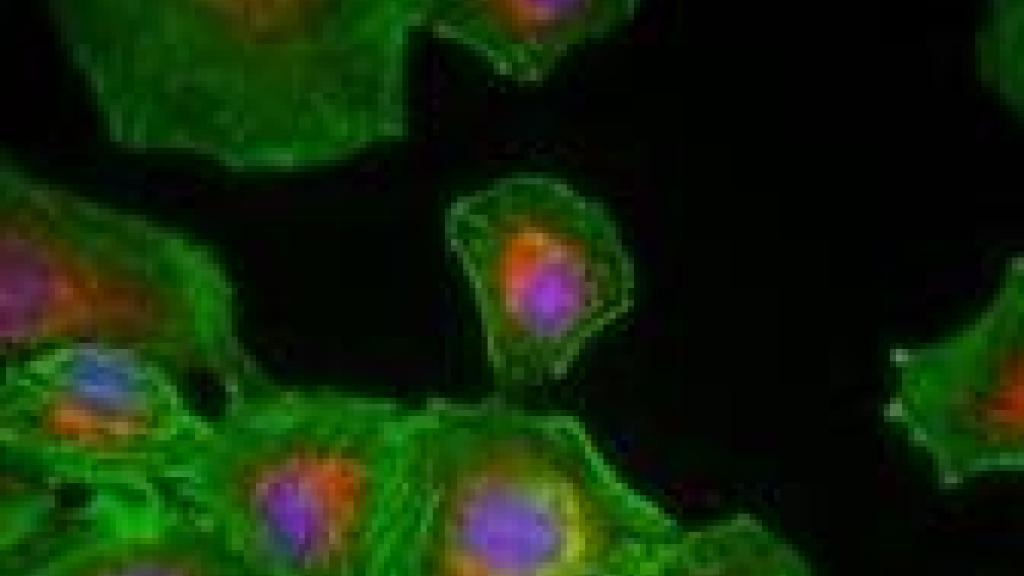
Research funded by the Irish Cancer Society reveals new targets for tumour cell survival in Lung Cancer
Research funded by the Irish Cancer Society revealed an important discovery in lung cancer research which has the potential to halt the progression of the disease. The findings, from a study led by Professor Ken O’Byrne and conducted by Dr Mary Clare Cathcart, St James’s Hospital, is the first project to examine the role of enzymes shown to regulate blood clotting and determine their influence on clinical parameters including lung cancer growth, new blood vessel formation and tumour cell survival.
The research is being highlighted ahead of the British Thoracic Oncology Group Annual Conference (BTOG) which is taking place in the Burlington Hotel from Wednesday, 25th to Friday, 27th January, where over 600 medical professionals will convene to discuss novel therapies and new research projects.
Prof. O’Byrne’s study demonstrates how two blood clotting enzymes (thromboxane synthase and prostacyclin synthase) are key factors in the development and progression of lung cancer, even though the enzymes work in opposing ways:
- One enzyme (thromboxane synthase) promotes the growth of lung cancer cells and appears to help the tumour develop a rich blood supply, providing it with the nutrients and oxygen necessary to develop and spread quickly
- The other is a protective enzyme (prostacyclin synthase) that works by reducing the growth of lung cancer cells
A Biobank facility, established and located at St James’s Hospital was central to this lung cancer research. The only lung cancer Biobank in Ireland, it enabled researcher Dr Mary Clare Cathcart, and the team to investigate enzymes in lung cancer tissue samples from 204 lung cancer patients. Interestingly, results showed that the cancer-promoting enzyme, thromboxane synthase, was present in high amounts in patients with adenocarcinoma, and this enzyme was also higher in female patients compared with males. Whilst the variance could be the result of women having higher oestrogen levels compared with men, therefore increasing the production of the enzyme, more research is necessary to identify the exact cause.
According to Prof. O’Byrne, President of the BTOG: “Lung Cancer has the highest mortality rate of all cancers with less than 12 per cent of patients surviving five years after diagnosis in Ireland. It is now the biggest cancer killer for both men and women, with 1,708 people dying in 2010.”
He added, “Smoking is the key cause of lung cancer and the number of cases is expected to grow annually. Our research has significantly improved our knowledge of the regulatory mechanisms that control the survival of tumour cells in the lungs and we are confident that it will lead to new therapies that target lung cancer and make it controllable in the future.”
Professor John Fitzpatrick, Head of Research at the Irish Cancer Society, which is the largest voluntary funder of cancer research in Ireland said, “We know that with early detection, there is a very real chance of effective treatment for lung cancer. This research has lead to a better understanding of how lung cancer cells develop and spread in the body, and the discovery of an enzyme that promotes the growth of these cells represents a potential target for new treatments for lung cancer.”
He added, “Prof. O’Byrne’s research shows that discoveries being made here in Ireland can and hopefully will lead to improvements for lung cancer patients. It will take some time for this and other research to lead to improved outcomes for lung cancer patients, but every discovery is helping to give us a better understanding of this disease and to find innovative ways to treat it. “
The Irish Cancer Society’s vision for cancer research centres on achieving world-class discoveries to improve outcomes for patients throughout Ireland. Over the past 30 years, cancer research funded by the Irish Cancer Society has led to major advances in our understanding of malignant disease and more than 650 important research findings have been discovered. The Irish Cancer Society has contributed more than €26 million to cancer research since 1963.
